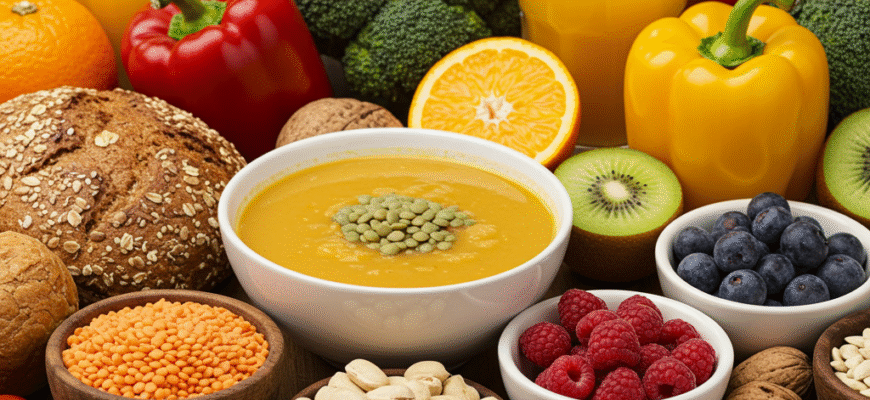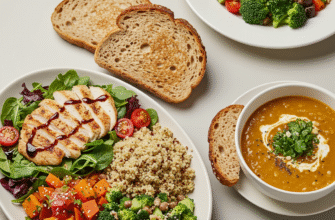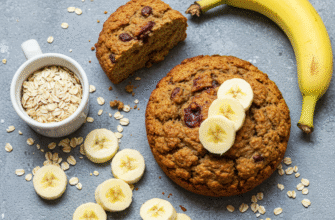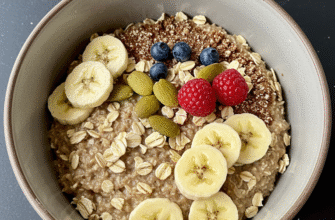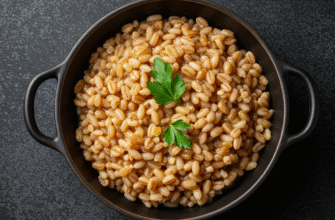Ever notice how reaching for a specific snack can sometimes feel like it lifts your spirits, even just a little? It’s not always just wishful thinking. The connection between what we eat and how we feel is becoming increasingly clear. While food isn’t a cure-all for mood issues, making thoughtful choices about your diet can genuinely play a supportive role in maintaining a more positive and stable emotional state. Forget complicated regimens; sometimes, the simplest whole foods pack the most powerful punch for your well-being.
Think of your brain as a high-performance machine. Just like a car needs the right fuel to run smoothly, your brain needs specific nutrients to function optimally. These nutrients are the building blocks for neurotransmitters – the chemical messengers that regulate everything from sleep and appetite to, yes, your mood. When your diet lacks these essential components, you might find yourself feeling sluggish, irritable, or just plain down. Conversely, consistently providing your brain with the good stuff can help keep things running on a more even keel.
Fueling Happiness: Key Nutrients and Where to Find Them
Let’s dive into some specific nutrients and the delicious foods that deliver them. Incorporating more of these into your regular eating pattern could make a noticeable difference over time.
Omega-3 Fatty Acids: Brain Boosters
These healthy fats are superstars when it comes to brain health. They are integral components of brain cell membranes and play crucial roles in cell signaling. Specifically, EPA and DHA are the types most studied for their potential mood benefits. While the exact mechanisms are still being researched, omega-3s are thought to influence neurotransmitter pathways and potentially reduce inflammation, which has been linked to mood fluctuations.
- Fatty Fish: Salmon, mackerel, sardines, herring, and anchovies are prime sources of EPA and DHA. Aiming for a couple of servings per week is a great goal.
- Plant-Based Sources: While plant sources provide ALA, another type of omega-3, the body’s conversion to EPA and DHA is limited. However, they are still valuable! Include flaxseeds (ground is best for absorption), chia seeds, hemp seeds, and walnuts in your diet. Sprinkle them on yogurt, oatmeal, or salads.
Tryptophan: The Serotonin Precursor
You might have heard of tryptophan in relation to Thanksgiving turkey and the subsequent nap. This essential amino acid is vital because the body uses it to produce serotonin. Serotonin is often called the “feel-good” neurotransmitter; it plays a significant role in regulating mood, sleep, and appetite. Ensuring adequate tryptophan intake is necessary for maintaining healthy serotonin levels.
Good sources include:
- Poultry (like turkey and chicken)
- Eggs
- Cheese
- Tofu and soy products
- Nuts and seeds (pumpkin seeds, sesame seeds)
- Salmon
- Pineapple (in smaller amounts)
It’s worth noting that consuming tryptophan-rich foods alongside carbohydrates might help it cross the blood-brain barrier more effectively, potentially enhancing serotonin production. Think whole-wheat toast with turkey or eggs, or oatmeal with nuts and seeds.
B Vitamins: Energy and Neurotransmitter Synthesis
The B vitamins are a group of essential nutrients that work together on many bodily functions, including energy production and the creation of neurotransmitters like serotonin, dopamine, and GABA. Deficiencies in certain B vitamins, particularly B12, B6, and folate (B9), have been linked to mood issues in some studies.
- Folate (B9): Found abundantly in leafy green vegetables (spinach, kale, collard greens), legumes (lentils, beans, chickpeas), asparagus, and avocados.
- Vitamin B6: Present in chickpeas, potatoes, bananas, poultry, fish, and fortified cereals.
- Vitamin B12: Primarily found in animal products like meat, poultry, fish, eggs, and dairy. Vegetarians and vegans might need to look for fortified foods or consider supplementation after consulting a healthcare provider.
Eating a varied diet rich in whole grains, lean proteins, fruits, and vegetables generally provides a good spectrum of B vitamins.
Magnesium: The Relaxation Mineral
Magnesium is involved in over 300 enzymatic reactions in the body, including those related to nerve function, muscle relaxation, and stress response. Some research suggests a link between low magnesium levels and increased feelings of anxiety or stress. Ensuring adequate intake might help promote a sense of calm.
Boost your magnesium with:
- Dark leafy greens (spinach, Swiss chard)
- Nuts and seeds (almonds, cashews, pumpkin seeds)
- Legumes (black beans, edamame)
- Whole grains (quinoa, brown rice)
- Avocado
- Dark Chocolate: Yes, really! Choose varieties with 70% cacao or higher for the best magnesium boost (and enjoy in moderation).
The Gut-Brain Connection: Happy Gut, Happy Mind?
An exciting area of research is the gut-brain axis – the constant two-way communication between your digestive system and your brain. Your gut is home to trillions of microorganisms (the gut microbiota) that play roles in digestion, immunity, and even the production of neurotransmitters like serotonin (a large portion is actually produced in the gut!).
Nurturing a healthy gut environment with probiotics (beneficial bacteria) and prebiotics (fiber that feeds these bacteria) may positively influence mood.
- Probiotic-Rich Foods: Yogurt with live active cultures, kefir, sauerkraut, kimchi, miso, tempeh, and kombucha.
- Prebiotic-Rich Foods: Foods high in fiber act as prebiotics. Think garlic, onions, leeks, asparagus, bananas, oats, apples, and chicory root.
Focusing on a fiber-rich diet full of diverse plant foods is key to supporting a healthy gut microbiome.
Complex Carbs vs. Simple Sugars: The Energy Factor
Have you ever experienced a sugar rush followed by an energy crash and irritability? That’s the effect of simple carbohydrates (like sugary drinks, white bread, pastries). They cause a rapid spike in blood sugar, followed by a sharp drop, which can negatively impact mood and energy levels.
Complex carbohydrates, on the other hand, are digested more slowly, providing a steady release of glucose into the bloodstream. This helps maintain stable energy levels and avoids those mood-destabilizing peaks and troughs.
Choose complex carbs like:
- Oats (steel-cut or rolled)
- Quinoa
- Brown rice
- Whole-wheat bread and pasta
- Barley
- Legumes (beans, lentils, peas)
- Starchy vegetables (sweet potatoes, butternut squash)
Antioxidant Power: Fighting Stress
Oxidative stress, caused by an imbalance between free radicals and antioxidants in the body, can contribute to inflammation and may play a role in mood regulation. Antioxidants help neutralize these damaging free radicals.
Load up on antioxidant-rich foods:
- Berries: Blueberries, strawberries, raspberries, blackberries are packed with potent antioxidants called anthocyanins.
- Dark Chocolate: Again, choose high-cacao options for flavonoids.
- Leafy Greens: Spinach and kale offer vitamins and antioxidants.
- Colorful Vegetables: Bell peppers, carrots, beets – variety is key.
- Nuts and Seeds: Offer vitamin E and other protective compounds.
- Green Tea: Contains EGCG, a powerful antioxidant.
Remember this: While specific foods contain nutrients that support mood, the most significant impact comes from your overall dietary pattern. Aim for a balanced diet rich in whole, unprocessed foods like fruits, vegetables, whole grains, lean proteins, and healthy fats. Consistency is more important than focusing on just one or two “superfoods” for sustainable well-being.
Putting It All Together: Simple Swaps and Mindful Eating
Boosting your mood through food doesn’t require a complete dietary overhaul overnight. Start with small, manageable changes. Swap white bread for whole-wheat, add a handful of spinach to your smoothie, snack on nuts instead of chips, or try incorporating fatty fish once or twice a week. Preparing meals at home more often gives you greater control over ingredients.
Furthermore,
how you eat matters too. Practicing mindful eating – paying attention to the flavors, textures, and sensations of your food without distraction – can enhance enjoyment and potentially improve your relationship with food and your body’s signals. Slowing down and savoring your meals can also aid digestion, indirectly supporting that gut-brain connection.
Ultimately, nourishing your body with wholesome foods is an act of self-care that extends beyond physical health. It provides the essential building blocks your brain needs to function at its best, potentially leading to brighter days and a more resilient spirit. Experiment, find what works for you, and enjoy the journey to feeling good, inside and out.

